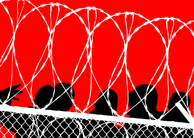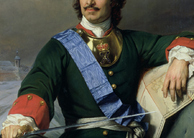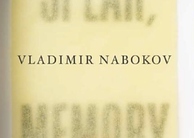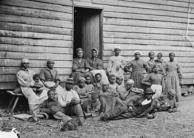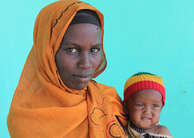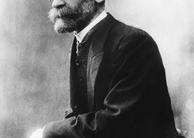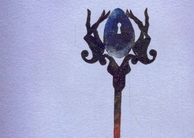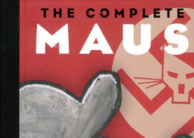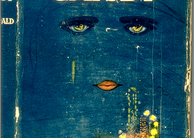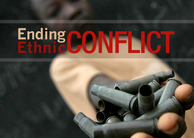|
2011 Volume 3 Issue 1
2011, Vol. 3 No. 01
The search for the criminal personality or super trait has captured both the minds and imaginations of academics and the wider community (Caspi et al., 1994). Partly, this is due to a stubborn aversion to the notion that normal, regular people rape... Read Article »
2011, Vol. 3 No. 01
Peter the Great inherited a score of problems in the administration of his empire. Of course, through his well-known zest and ambition, he tried to solve most of them, and made steps in that direction. However, his actions did not always have the... Read Article »
2011, Vol. 3 No. 01
President Obama has an immense task before him. In this upcoming year, he will be responsible for the long overdue reauthorization of the No Child Left Behind Act (NCLB) of 2001. This act is based on the standards-based reform model which is comprised... Read Article »
2011, Vol. 3 No. 01
The insight that Vladimir Nabokov provides into the 1905 Russian Revolution, in his book Speak, Memory, sometimes merges with the general view--presented, for example, by Nicholas V. Riasanovsky in a more traditional account--but at many other times... Read Article »
2011, Vol. 3 No. 01
If you talk to any person in the field of education today about high-profile and controversial issues in their field, the topic of high-stakes standardized testing will inevitably come up. This issue has been around for a long time, but was... Read Article »
2011, Vol. 3 No. 01
For many decades, scholars have debated the importance of religion in helping slaves cope with the horrible experience of slavery in the antebellum South. However, the way they treated the subject differs and the conclusions they reached are varied... Read Article »
2011, Vol. 3 No. 01
F.W. Murnau had a diverse and artistic upbringing, and led an international lifestyle as an adult. His experiences, interests, and education naturally had a profound effect on the way he viewed the world and expressed himself artistically. Writing... Read Article »
2011, Vol. 3 No. 01
Dealing with the issue of healthcare is no small challenge for any country, either rich or poor. For Ethipoia, health issues represent a major challenge. Tuberculosis, malaria, mental illnesses, and especially HIV/AIDS are health issues with which... Read Article »
2011, Vol. 3 No. 01
Throughout Émile Durkheim’s Social Facts, he provides an account of what he deems to be the correct nature of social facts. This essay explores his account in order to assess its relation to both methodological holism and methodological... Read Article »
2011, Vol. 3 No. 01
Throughout the course of the second half of the 20th century, it is undeniable that the organizational structures and methods employed by political parties have changed: one hypothesized change, publicized by Katz and Mair, is the evolution of parties... Read Article »
2011, Vol. 3 No. 01
Religion is a subject that we encounter daily, either because we follow a specific faith and the rules established by it, or because we meet people who proclaim their faith unabashed, or because we know it is a taboo subject in social conversations... Read Article »
2011, Vol. 3 No. 01
When starting on an autobiography, the author must ask themselves how they will choose to deal with the aspect of time in their work. Will they choose to follow the events of their life lineally or in a stream of consciousness recall? This contemplation... Read Article »
2011, Vol. 3 No. 01
Youth without Age and Life without Death and Where there is No Death present the theme of time in opposite ways: while in Youth without Age and Life without Death man cannot live outside history and linear time without missing it and meeting his... Read Article »
2011, Vol. 3 No. 01
The mere mention of the English Language Arts content area, for many people, might conjure images of ancient, dusty tomes, the sound of a classroom full of pens scratching across college-ruled paper, or the palpable befuddlement of students staring... Read Article »
2011, Vol. 3 No. 01
Yevgheny Yevtushenko’s poetry spans time and space when relating to Russia and its history. His poetry, as he himself, declares, is intended to teach the conscience of anyone who reads it. And indeed, his poetry, whether political or romantic... Read Article »
2011, Vol. 3 No. 01
Once upon a time, in a land called America, people truly believed in a capitalist system. Citizens worked hard their entire lives to feed into their 401-K plans and expected that depending on how the economy went, they may profit from their work... Read Article »
2011, Vol. 3 No. 01
Fitcher’s Bird, by the Brothers Grimm, and Margaret Atwood’s Bluebeard’s Egg present the theme of a woman’s identity through her marriage in different ways: while the woman in Fitcher’s Bird retains her identity through... Read Article »
2011, Vol. 3 No. 01
This paper explores the link between cultural identity and globalization through the lens of wine appellation regulations in the United States, with the American Viticultural Areas (AVAs), and in France, with Champagne. The expansion of economic... Read Article »
2011, Vol. 3 No. 01
Madame de Beaumont's Beauty and the Beast and Angela Carter's The Tiger's Bride delve into the nature of men and women and the relationships between them by exploring and analyzing the motifs of wildness and civilization. Thus, women are presented... Read Article »
2011, Vol. 3 No. 01
An artist, especially one who works with the visual media, is bound to come across obstacles in his creation of a work that represents or recollects images of the Shoah (i.e., the Holocaust). Precisely how does one represent an almost industrial... Read Article »
2011, Vol. 3 No. 01
August Wilson represents the experiences of African-Americans in each decade of the 20th century in his Pittsburgh Cycle, a collection of ten plays. Throughout this canon, language is used not just as an important form of communication amongst... Read Article »
2011, Vol. 3 No. 01
As children, we idolize the relationship of our parents. We watch their love and affection and assume that such relationships are easy to find−that love comes naturally. This naïveté is portrayed on the television sitcom &ldquo... Read Article »
2011, Vol. 3 No. 01
The divide between human and non-human, real and not-real, is a problem frequently explored in texts about toys and undead creatures. Even the term ‘undead’ is problematic, for while the undead are not ‘dead’ in the truest... Read Article »
2011, Vol. 3 No. 01
F. Scott Fitzgerald, as quoted by Matthew Bruccoli, recognized the importance of his own novel and its artistic achievements: “Gatsby was far from perfect in many ways but all in all it contains such prose as has never been written in America... Read Article »
2011, Vol. 3 No. 01
Big oil’s ruthless supply and demand tactics have monopolized the entire energy industry by shredding competitors’ attempts to offer alternatives. Consumers are thus forced to surrender their right to choose due to the aggressive techniques... Read Article »
2011, Vol. 3 No. 01
Although peace and pacifism are familiar ideas to most students today, for much of human history these concepts have been relegated to the religious domain and excluded from the study and practice of politics.[1] At the same time, war--organized... Read Article »
2011, Vol. 3 No. 01
“Human security means protecting vital freedoms. It means protecting people from critical and pervasive threats and situations, building on their strengths and aspirations. It also means creating systems that give people the building blocks... Read Article »
Issue Archives
2026 - Volume 18
2025 - Volume 17
2024 - Volume 16
2023 - Volume 15
2022 - Volume 14
2021 - Volume 13
2020 - Volume 12
2019 - Volume 11
2018 - Volume 10
2017 - Volume 9
2016 - Volume 8
2015 - Volume 7
2014 - Volume 6
2013 - Volume 5
2012 - Volume 4
2011 - Volume 3
2010 - Volume 2
2009 - Volume 1
|

